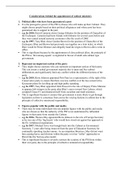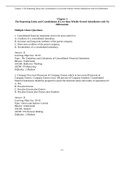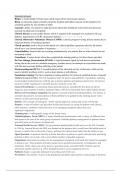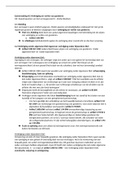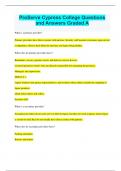Summary
Summary AQA Politics - Prime Minister and Cabinet Essay Plans
- Institution
- AQA
These essay plans include the main points and examples needed to answer nearly every question on the UK PM and Cabinet. Best supplemented with case study booklet.
[Show more]
